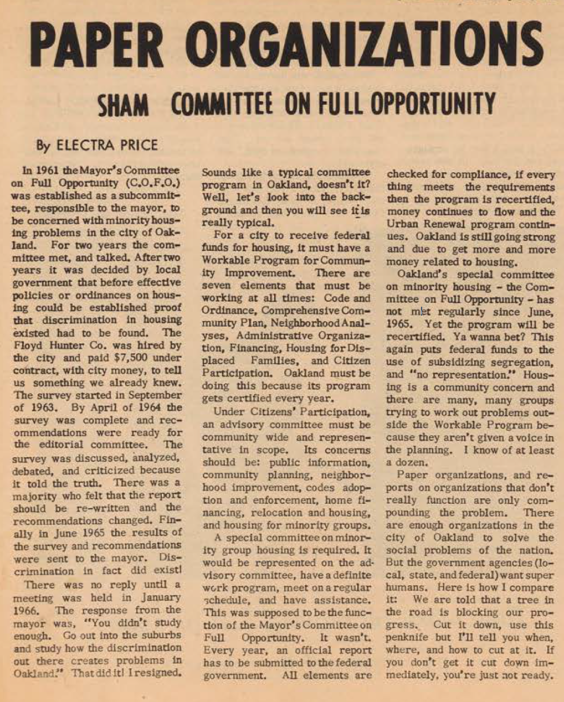The Target Area Advisory Committee members were not Oakland’s only disgruntled activists. In 1963, Oakland Mayor John Houlihan commissioned the UC Berkeley sociologist Floyd Hunter, through the city’s Committee on Full Opportunity (COFO), to study and report on housing discrimination against black and Mexican-American renters and homebuyers.
The final report, presented to COFO the following summer, was scathing: it found widespread prejudice and discriminatory practices among the city’s white population and realty firms. The publication of the report was suppressed, and the 1964 passage of the Rumford Act outlawing racial discrimination in housing helped to ameliorate the problem to a degree, but disenchantment with the city’s anti-discrimination policies continued to grow.
Tensions came to a head in early 1966, when Mayor Houlihan charged COFO with investigating the discriminatory practices of cities and municipalities bordering Oakland. Houlihan blamed the city’s subpar availability of housing for its black citizens on the “white wall” of neighboring cities like San Leandro and Pleasanton, cities that were considerably whiter than Oakland and into which Oakland’s white population had been fleeing in recent years. Houlihan claimed that Oakland was doing what it could to mitigate the problems of its black citizens, but that ultimately the problem lay with the discriminatory practices of its neighbors.
COFO board members like Electra Price, the author of this article and a future candidate for the Oakland Board of Education, found this absurd on its face: why should members of an Oakland city board spend time scrutinizing the problems of other cities instead of fixing the problem at hand?
City leaders’ refusal to deal straightforwardly with issues of racial discrimination led Price and others to resign, and helped to push them into community and neighborhood groups that sought to pressure “the power structure” for changes from the outside.
